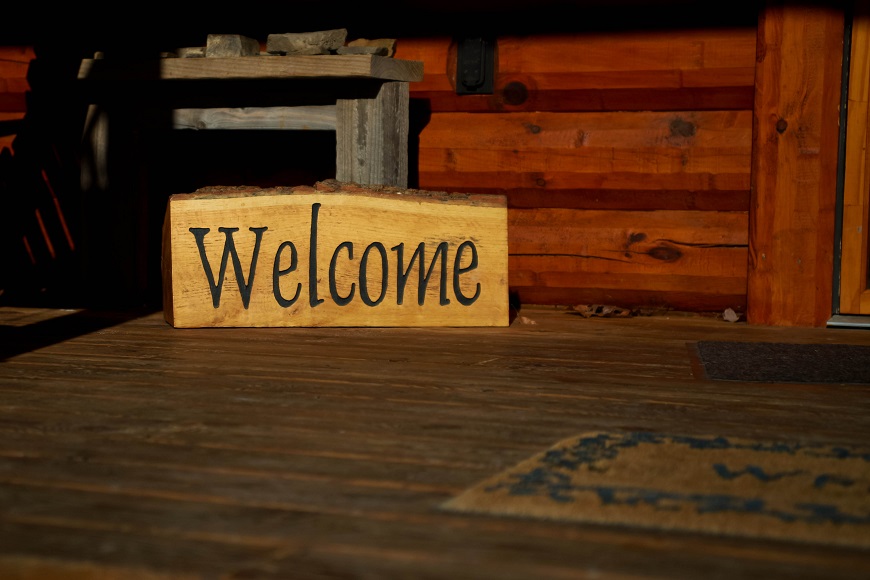
What is the CABHI project?
The CABHI (pronounced Cab-ee) Project is the Cooperative Agreement to Benefit Homeless Individuals, of course. This project is a 3 year, $1.8 million Substance Abuse and Mental Health Services Administration (SAMHSA) grant for the City of Lincoln. The grant was received by Region V Systems as the fiscal agent but is a model collaborative project in the community involving CCFL, the Public Policy Center, CenterPointe, the Mental Health Association, the Lincoln Homeless Coalition and Continuum of Care, and Region V Systems. The project will provide the support services needed for those in our community who are chronically homeless.
Chronically homeless individuals have an identified disability; have been homeless for 12 months continuously or homeless 4 times in 3 years totaling 12 months of homelessness. These are mostly individuals; however there can also be some chronically homeless families, who reside in Lincoln, which as their definitional situation suggests are in very difficult and tough situations on multiple levels. CABHI is to help assist the chronically homeless to receive the mental health and substance abuse services and employment supports they need with the assistance of a peer mentor.
CABHI is a “Housing First” program, meaning that the first thing done to assist any person is to get them housed. Simply having a roof over your head at night solves so many darn things all by its self – who’d a thunk it? Getting a chronically homeless person housed anywhere is difficult and Lincoln presents some unique challenges in that the rental housing stock available at “Fair Market Rent” for a single individual, typically with bad rental history, not infrequently with criminal history, and dealing with mental health and/or substance abuse issues are in somewhat limited supply. Then you add on that the folks that are in these situations are just more than a little bit skeptical that anyone or anybody is really there to “help” and you can begin to see the dimensions of the challenge. Even though CABHI is housing first, the peer mentor support and working with homeless individuals to get the support services begins as soon as the homeless person wants even if they are not housed.
So what is CCFL’s role? We help the helpers do their thing. CCFL is the Lincoln and Balance of State Coordinated Entry lead entity and the Homeless Management Information System lead entity. In those capacities we are assisting the City of Lincoln design, implement, and evaluate a standardized or coordinated homeless system for all homeless persons and providing the data system, training on, management of, and reporting on homelessness. In our coordinated entry role CCFL develops and manages the system that assesses, prioritizes, and refers homeless persons to the most appropriate housing solution for their situation including CABHI. We also are able to provide and analyze the data on the homeless persons that are entered into the program and the status of their housing into the future.
Who are the members of the CABHI project? Myself and Tamara as the HMIS System Administrator for the CABHI project are CCFL members that are on the CABHI project but our entire Community Services team of Angel, Abby, Mary, and Denise are very involved and have important roles in making this work. Other partners in the effort are The University of Nebraska Public Policy Center, Region V Behavioral Health Systems, CenterPointe and the Mental Health Association of Nebraska.
When did the CABHI project begin, and how long is it for?
This project began in January 2017 and is a three year grant from the U.S. Substance Abuse and Mental Health Services Administration.
What inspired this project and how has it evolved? The Lincoln Homeless Coalition and the Continuum of Care are committed to ending homeless in our community. Housing and keeping housed those who are chronically homeless is, after ending homelessness for U.S. military veterans, the homeless subpopulation we are focused on.
An RFA from SAMSHA.
Homeless programs and work are continually evolving and changing to meet the changing environment of the population, changes in our Coordinated Entry System continues to develop and evolve, and changes from local, state, and federal policy and funding.
This program will assist 60 chronically homeless individuals. In January and February chronically homeless were being pulled from our priority listing at an unseen rate and now that most slots are filled our chronically homeless priority listing is swelling again. We and the Continuum are now, as they have been in the past, struggling with how we continue to meet the need in a permanent housing situation when housing and resources are limited. Many chronically homeless individuals enter a permanent supportive housing program and they are in the program for many, many years. Some in fact never leave but they are HOUSED and never homeless again!
Any challenges in the project?
See above.
What’s the most exciting or best part of getting to work on or being part of this project? There are many best parts of this project but a few personal ones are seeing decades of work, red-tape, effort, frustration, relationship building coming together to try and help solve an incredibly difficult problem. Helping design and implement a program to assist homeless service providers on the front lines to help people no longer have to sleep on the street or in a shelter has some intrinsic, added value. Having the opportunity to sit in as a peer support worker tells a chronically homeless person that they have a housing opportunity for them is a pretty “scwheet” little perk as well.